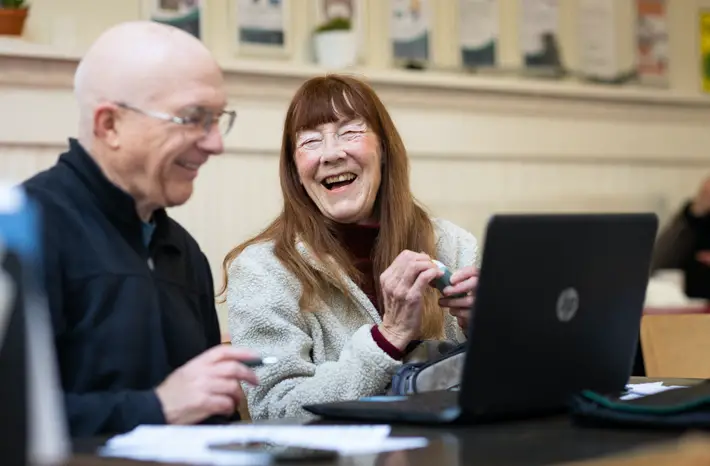Eight Ways That Local Businesses Can Better Care for Elderly Customers’ Needs

As the population ages, it becomes increasingly important for local businesses to adapt and cater to the needs of elderly customers. By understanding the unique challenges and preferences of older adults, businesses can create inclusive and age-friendly environments that promote customer satisfaction and loyalty. In this article, we will explore practical strategies that local businesses can implement to better care for the needs of elderly customers. From enhancing accessibility to providing personalised assistance, these strategies can help businesses foster a positive and inclusive experience for elderly patrons.
1. Understanding The Needs Of Elderly Customers
To better care for elderly customers, businesses must first understand their specific needs and challenges. Consider the following factors:
• Physical Limitations: Older adults may experience mobility issues, hearing or vision impairments, or reduced dexterity. Businesses should consider these limitations when designing their premises and offerings.
• Communication: Elderly customers may require more time or assistance to communicate their needs effectively. Patience, clear communication, and active listening are crucial when interacting with older adults.
• Comfort And Safety: Older customers may require additional comfort measures, such as seating with proper back support or non-slip flooring. Ensuring a safe environment with adequate lighting and handrails is also important.
2. Enhancing Accessibility
Taxi companies play a vital role in providing transportation for elderly customers. Enhancing accessibility in taxi services can greatly benefit older adults. Consider the following strategies:
• Wheelchair Accessibility: Ensure that a portion of the taxi fleet is wheelchair accessible, allowing elderly customers with mobility challenges to travel comfortably and independently. You can find a great range of wheelchair-accessible taxis at Cab Direct. They can help you to find the best fit for your finance and flexibility needs.
• Driver Assistance: Train taxi drivers to assist elderly passengers with boarding and alighting the vehicle. Encourage drivers to be patient, courteous, and attentive to the needs of older customers.
• Clear Signage: Display clear signage indicating the availability of wheelchair-accessible taxis. This helps elderly customers easily identify and request suitable vehicles.
3. Creating Age-Friendly Physical Spaces
Businesses can make their physical spaces more age-friendly to accommodate the needs of elderly customers. Consider the following approaches:
• Accessible Entrances: Install ramps or elevators to ensure easy access for customers with mobility aids, such as walkers or wheelchairs. Remove any potential barriers, such as steps or uneven surfaces.
• Clear Signage: Use clear and visible signage with larger fonts to assist older adults in navigating the premises. Signage should include directions to essential areas, restrooms, and emergency exits.
• Ample Seating: Provide sufficient seating throughout the premises to allow older customers to rest and take breaks. Ensure that the seating is comfortable and offers adequate back support.
• Proper Lighting: Ensure that the premises are well-lit, both inside and outside. Adequate lighting helps older customers with visual impairments navigate the space safely and confidently.
• Accessible Restrooms: Install accessible restrooms that are spacious, well-lit, and equipped with grab bars. Consider using contrasting colours to improve visibility.
4. Personalised Assistance And Customer Service
Providing personalised assistance and exceptional customer service is crucial for catering to the needs of elderly customers. Consider the following strategies:
• Patient And Respectful Service: Train staff members to be patient, respectful, and empathetic when interacting with elderly customers. Encourage them to take the time to listen and address any concerns or questions.
• Assistance With Carrying Bags: Help older customers in carrying their bags or parcels to their vehicles or taxis. This small gesture can greatly alleviate physical strain and enhance the customer experience.
• Reserved Parking Spaces: Allocate reserved parking spaces close to the entrance for elderly customers. These spaces can provide convenience and ease of access, especially for those with limited mobility.
• Accessible Customer Support: Provide multiple channels for customer support, including telephone hotlines or online chat, to assist elderly customers who may prefer alternative communication methods.
5. Collaboration With Senior Support Services
Local businesses can collaborate with senior support services to better understand and address the needs of elderly customers. Consider the following initiatives:
• Partnerships With Senior Centres: Collaborate with local senior centres to host educational workshops or events that focus on addressing the specific needs of older adults. This can help businesses gain insights and build relationships with the elderly community.
• Feedback And Advisory Boards: Establish feedback channels or advisory boards consisting of older adults to provide insights and suggestions for improving the business’s services and offerings.
• Community Outreach Programs: Engage in community outreach programs that provide support and resources to elderly individuals. This demonstrates the business’s commitment to the well-being of the local elderly population.
6. Offering Specialised Products And Services
Local businesses can further cater to the needs of elderly customers by offering specialised products and services tailored to their preferences. Consider the following strategies:
• Senior Discounts: Provide exclusive discounts or promotions for elderly customers. This not only acknowledges their patronage but also helps make products and services more affordable for them.
• Customised Menus: Restaurants and food establishments can offer menu options that cater to dietary restrictions or preferences commonly associated with older adults, such as low-sodium or soft-textured meals.
• Assistive Devices: Consider offering or partnering with suppliers of assistive devices, such as walking aids or hearing amplifiers. This can provide convenience for older customers and address their specific needs.
• Home Delivery Services: Implement home delivery services for elderly customers who may have difficulty visiting the store or restaurant physically. This service can ensure that they have access to essential goods and meals conveniently.
7. Staff Training And Sensitisation
Investing in staff training and sensitisation is crucial for local businesses to better understand and serve elderly customers. Consider the following approaches:
• Age Sensitivity Training: Provide training sessions to staff members on age sensitivity and effective communication with older adults. This training can enhance their understanding of the unique needs and challenges faced by elderly customers.
• Empathy And Patience: Encourage staff members to approach interactions with elderly customers with empathy, patience, and respect. Remind them to be mindful of potential physical limitations and to help when needed.
• Cultural Competence: Foster cultural competence among staff members to cater to the diverse needs of elderly customers from various backgrounds. Sensitise employees to different cultural norms, values, and communication styles.
• Continuous Feedback: Create a feedback mechanism where staff members can share their experiences and observations regarding elderly customers. This feedback can help identify areas for improvement and refine customer service strategies.
8. Collaborate with Healthcare Providers and Community Organisations
Collaborating with healthcare providers and community organisations can help local businesses better care for the needs of elderly customers. Consider the following initiatives:
• Health Screenings: Partner with local healthcare providers to offer health screenings or wellness checks at the business premises. This demonstrates a commitment to the overall well-being of elderly customers.
• Educational Workshops: Collaborate with community organisations or senior centres to organise educational workshops or seminars on topics relevant to the elderly population, such as nutrition, healthy ageing, or financial planning.
• Information Resources: Share information resources, brochures, or pamphlets provided by healthcare providers or community organisations that offer guidance and support for elderly individuals.
So Remember…
By implementing these strategies, local businesses can better care for the needs of elderly customers and create inclusive environments that promote their well-being and satisfaction. Understanding their specific needs, enhancing accessibility, providing personalised assistance, offering specialised products and services, and collaborating with healthcare providers and community organisations are essential steps in ensuring a positive and age-friendly experience for elderly customers. Local businesses have the opportunity to make a meaningful impact on the lives of older adults while fostering a sense of community and inclusivity.










